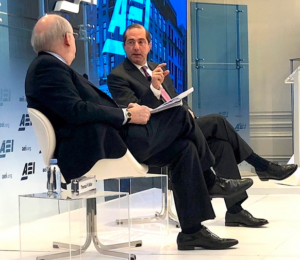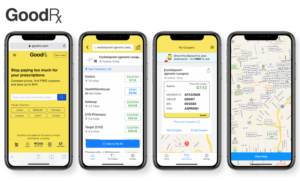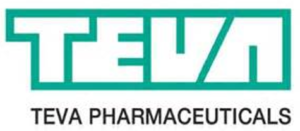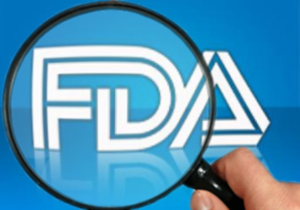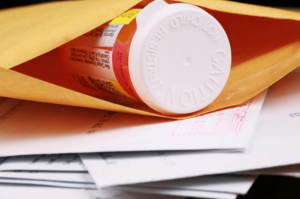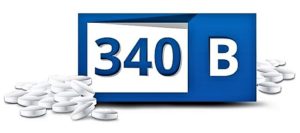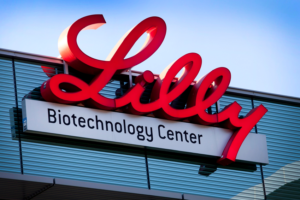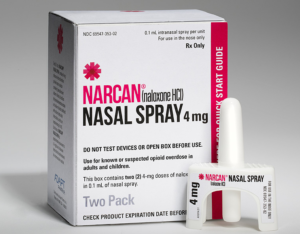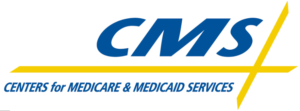- In China’s Xinjiang, forced medication accompanies lockdown (apnews.com)
The government in China’s far northwest Xinjiang region is resorting to draconian measures to combat the coronavirus, including physically locking residents in homes, imposing quarantines of more than 40 days and arresting those who do not comply. Furthermore, in what experts call a breach of medical ethics, some residents are being coerced into swallowing traditional Chinese medicine, according to government notices, social media posts and interviews with three people in quarantine in Xinjiang. There is a lack of rigorous clinical data showing traditional Chinese medicine works against the virus, and one of the herbal remedies used in Xinjiang, Qingfei Paidu, includes ingredients banned in Germany, Switzerland, the U.S. and other countries for high levels of toxins and carcinogens...READ MORE
- HHS bids out massive $250M ad campaign to put hopeful spin on coronavirus pandemic: report (fiercepharma.com)
The Department of Health and Human Services plans to spend $250 million in media communications to “defeat despair and inspire hope” around the coronavirus pandemic...an HHS document detailing the project...was sent to communications agencies to solicit bids for what would be an extremely large advertising campaign in the heart of the presidential campaign season...the campaign would tap traditional, digital and social media and partner with the sports and entertainment industries and public health groups “to deliver important public health and economic information the administration can defeat despair, inspire hope and achieve national recovery.”...While it’s not unusual for government agencies to use advertising to promote public health or raise awareness around a consumer issue, the size of the spend and its timing just ahead of the presidential election raised eyebrows....READ MORE
- GoodRx files to go public, boasting track record of profitability (fiercehealthcare.com)How GoodRx Profits from Our Broken Pharmacy Pricing System (drugchannels.net)
Joining a recent spate of digital health companies hitting the public market, GoodRx filed its initial public offering...The startup, which helps consumers find deals on their prescription medications, is looking to raise up to $100 million in an IPO...Unlike many other digital health companies that have gone public, GoodRx has been profitable since 2016...The majority of the company's revenue, or 97%, comes from its prescription offering in which if collects fees from pharmacy benefit managers when consumers use a GoodRx code to fill a prescription...With the acquisition of telemedicine company HeyDoctor...GoodRx...now competes with other startups that combine virtual care and pharmacy services such as Hims, Hers, Ro and Nurx...GoodRx doesn’t sell medications; it instead directs consumers to the drugstore with the best prices and offers coupons...READ MORE
- Teva indicted on U.S. price-fixing charges after walking away from settlement offers (fiercepharma.com)
With the walls closing in around it on a yearslong generics price-fixing probe, Israeli drugmaker Teva faced two options: Reach a deal with prosecutors or gamble. Teva chose to roll the dice, and now it finds itself facing conspiracy charges—and a potentially bigger penalty on the horizon...Federal prosecutors have charged Teva with conspiring to fix prices for a range of generic medicines between 2013 and 2015 as part of an industrywide scheme to overcharge consumers by more than $350 million, the U.S. Department of Justice said...The DOJ indicted Teva on three counts of criminal conspiracy and acting as a ringleader for a group of drugmakers that have previously pleaded guilty to their own price-fixing charges and are now cooperating with prosecutors...READ MORE
- The FDA Is Stifling Pharmaceutical Innovation (nationalreview.com)
By radically and continually expanding the paperwork, testing, and other legal and regulatory obstacles to bring a new drug to market or treatment to practice, since 1962 the FDA has caused the development time for new drugs to triple (from an average of four years before the amendments to twelve today), the cost to multiply 40-fold, and the number of new drugs introduced per year to be cut fivefold. Within five years of the amendments’ passage, 98 percent of U.S. drug companies (including all the small innovative ones) were eliminated from the drug-development business. Before the amendments, 50 percent of all new drugs invented worldwide were developed in the U.S. Today, it is 15 percent. Not only that, many new life-saving drugs have been kept out of the United States for as many as 20 years after they were put into use in the U.K. or Europe...READ MORE
- NCPA Urges Investigation of Mail Order Prescription Plans After USPS Delays (drugtopics.com)
Soon after the House Energy and Commerce Committee launched an investigation into potential US Postal Service delivery delays for mail order medications, NCPA said in a letter that the committee should broaden its investigation to probe long-term problems with mail order prescription plans...“Policymakers should investigate the cost and safety of mail order prescriptions as well as the impacts of any delivery delays on drug safety and efficacy,” said Karry La Violette, NCPA senior vice president of government affairs, in a news release. “We’re confident they will find that in many cases there are better, more reliable options—namely, patients’ neighborhood pharmacies—to help improve outcomes, protect patient choice, and control costs.”...“NCPA questions the integrity of a drug distribution system that relies exclusively on the mail and in which drugs are dispensed in excessive volume, over long distances, often exposed to extreme temperatures or humidity, delayed, and otherwise compromised.,” La Violette said in the letter...READ MORE
- Drugmakers getting bolder in fight over 340B drug discounts (fiercehealthcare.com)
Drugmakers are getting bolder in their bid to restrict access to drugs discounted under the 340B program as legal experts say a lack of enforcement has created a regulatory void...Hospitals are imploring the Department of Health and Human Services to clamp down on several moves by drug companies, including Novartis and AstraZeneca, to limit distribution of certain 340B drugs. But experts say an administration-wide change in what agencies can enforce is likely behind drugmakers’ aggressive moves...“It is an outrage that these actions are being taken at a time when hospitals are in the midst of their response to the COVID-19 public health emergency, which has further demonstrated the fractured, inadequate state of the prescription drug supply chain,” the American Hospital Association said in a release last week..It is the most aggressive move in a fight sparked last month between drug companies against contract pharmacies, which are a popular tool among 340B hospitals...READ MORE
- Eli Lilly to halt sales of 340B drugs to contract pharmacies with exception of insulin (fiercehealthcare.com)STATEMENT ON ELI LILLY CUTTING OFF ALL ACCESS TO 340B PRICING THROUGH COMMUNITY-BASED PHARMACIES (340bhealth.org)
Eli Lilly will no longer offer discounted products to 340B contract pharmacies, with the exception of insulin. The drug maker is the second to halt sales to contract pharmacies, following a move by AstraZeneca last month...Roughly one-third of the more than 12,000 340B hospitals use a contract pharmacy to dispense the discounted drugs, according to a 2018 report from the Government Accountability Office...The GAO report found that the Health Resources and Services Administration, which oversees the 340B program, does not fully assess compliance with the program’s prohibition on duplicate discounts for drugs prescribed to both Medicaid and 340B...Pharmaceutical manufacturers have also charged that the discount program has gotten too large and unwieldy...READ MORE
- Narcan must become as commonplace as CPR (thehill.com)Emergent steps to the plate with Major League Baseball and virtual experience for opioid overdose awareness (fiercepharma.com)
While the world continues to navigate the impacts of the COVID-19 pandemic, our other epidemic hasn’t gone away: The rate of opioid overdoses, already a national nightmare, has accelerated since the onset of COVID-19...It’s time to end this continuing tragedy. One of the ways to do this is by making naloxone...a safe, effective and use-specific antidote to opioid overdose — as common among bystanders as CPR...Narcan can be purchased in its generic or branded forms by anyone, without a prescription, at any participating pharmacy...In order to stem our national overdose epidemic, Narcan must be omnipresent in our public places, in our workplaces and schools, and in our homes...Years ago, CPR became a public health imperative. CPR became common after the American Red Cross, the American Heart Association and other major national organizations assumed the task of training. In today’s world, Narcan needs to have similar importance...As we observe International Overdose Awareness Day, it’s time to establish a new public health priority. Surgeon General Jerome Adams, in the first Surgeon General advisory of its kind in the past 15 years, is urging every American to carry Narcan, and be trained to administer it...READ MORE
- CMS to require hospitals to report critical COVID-19 data on bed capacity, PPE and cases (fiercehealthcare.com)
The Trump administration is now going to require all hospitals to submit daily critical information on COVID-19, including bed capacity and the availability of essential supplies...The Centers for Medicare & Medicare Services released an emergency regulation...calling for the mandatory reporting. The agency also posted new requirements for lab reporting and revised a policy for physician and pharmacist orders for COVID-19 tests...“While many hospitals are voluntarily reporting this information now, not all are,” CMS said in a release. “The new rules make reporting a requirement of participation in the Medicare & Medicaid programs.”...READ MORE


